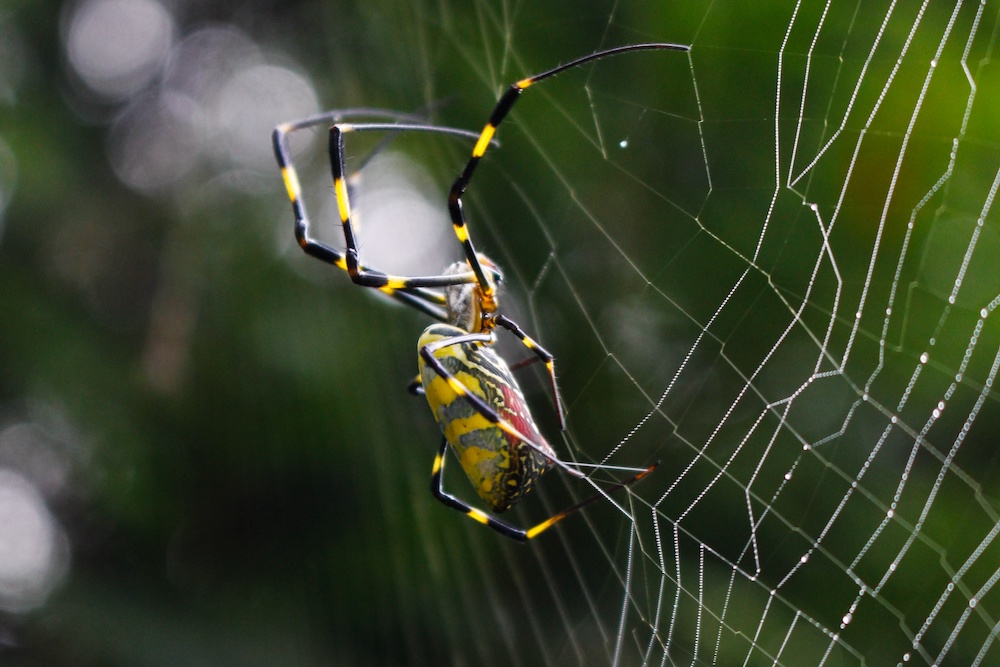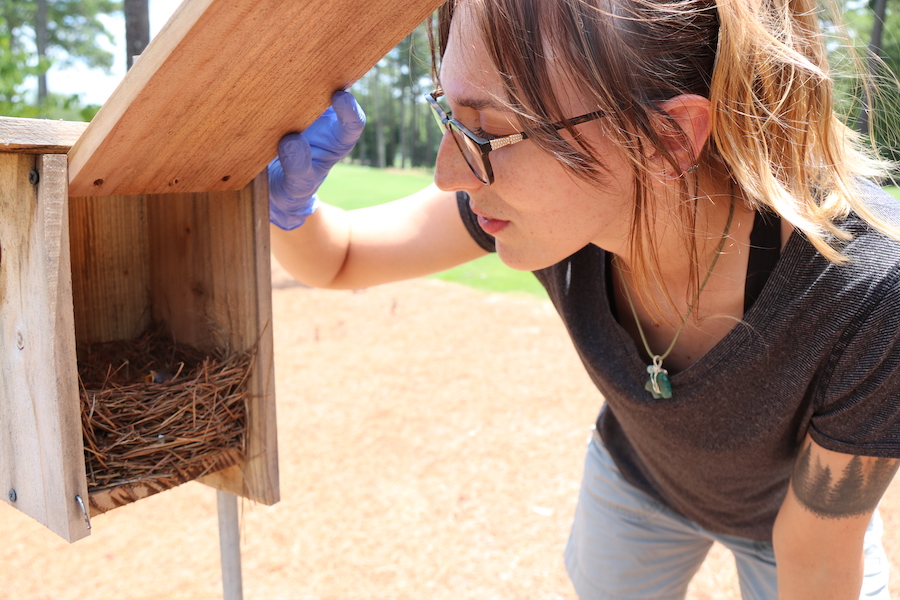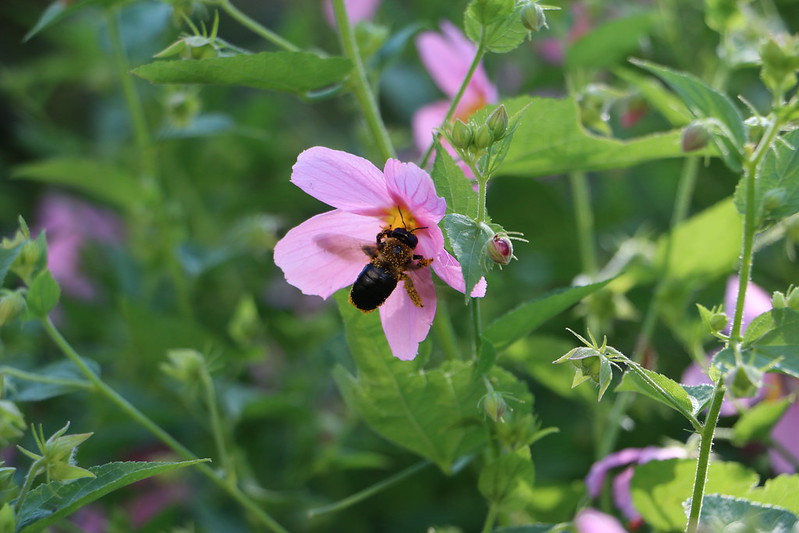Birds can be an important aspect of a backyard environment. The selection of food-producing trees and shrubs can ensure the presence of birds year-round. To attract and maintain a bird population, a habitat should provide food, cover, nesting areas and water.
To maximize the natural food source, select plants that will provide an available food source year-round. The use of native trees and shrubs will help ensure that appropriate fruits and berries are available for the local bird population. If the landscape does not supply food during certain periods, supplement with commercial mixes of birdseed. Some birds eat a wide variety of seeds while others prefer one or two types. The seeds that appeal to the majority of birds are sunflower, proso millet and peanut kernels.
Ornamental trees and shrubs can also supply the necessary cover, or shelter, and nesting areas. Birds require a cover or shelter if they are to become long-term residents. They require protection from inclement weather (sun, heat, wind, and rain) and natural predators. This is why birds prefer multi-stem plants that form dense canopies. The dense canopy also provides an ideal environment for nesting.
Since birds require shelter year-round, the landscape should include a mix of deciduous and evergreen plants. Evergreen plants include broadleaf evergreens, such as holly, and conifers, like red cedar. Several references suggest that at least 25 percent of trees and shrubs planted to attract birds should be evergreen.
A source of fresh water is also necessary to maintain a bird population. The water source should be shallow (no more than 2- to 3- inches deep) and replaced on a regular basis. Running water, such as a shallow fountain, is the ideal water source. The water source should be elevated or in the middle of an open area to minimize predation by cats and other animals.
For information about specific plant varieties to use in making your landscape bird friendly, contact your local University of Georgia Cooperative Extension Office at 1-800-ASK-UGA1.


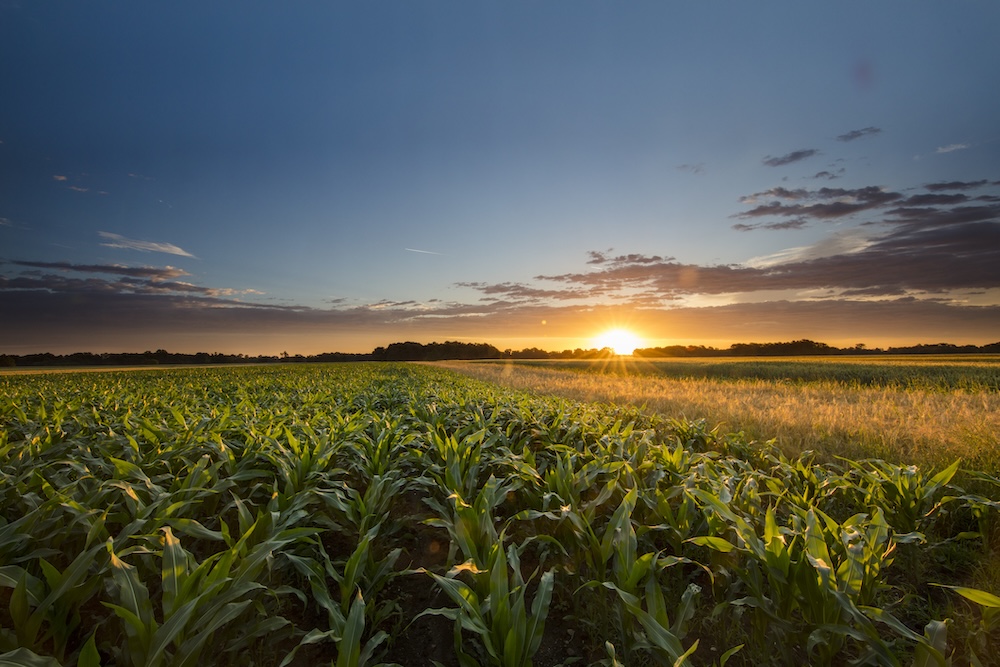
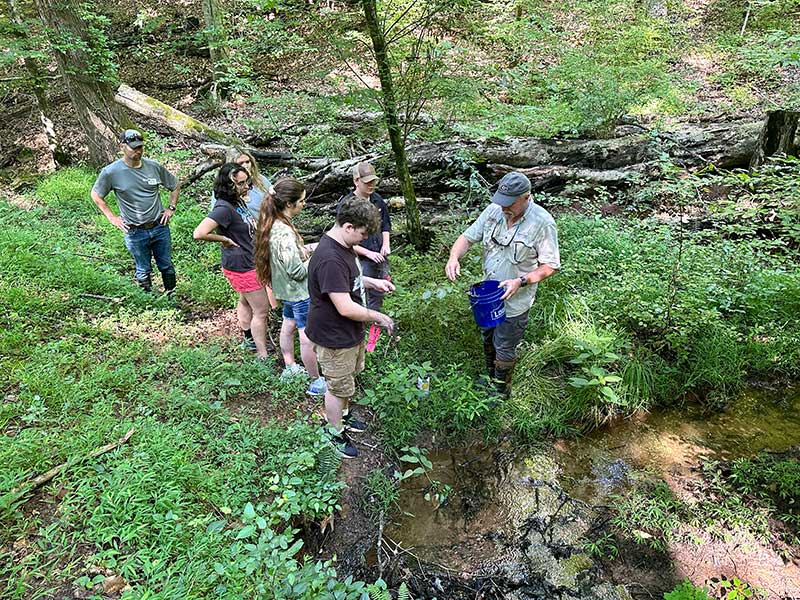
.jpeg)
